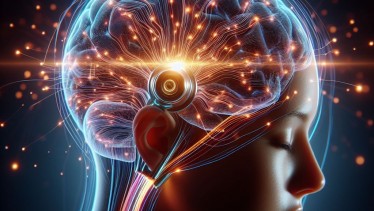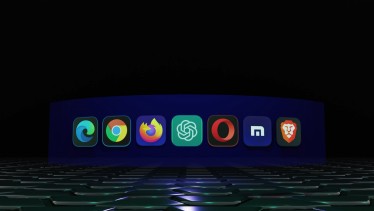Modern technology continues to churn ahead at a breakneck pace writ large, but few innovations are advancing at such a rapid pace as artificial intelligence, which promises to upend everything we know about healthcare management and predictive analytics. Over the past few years, intelligent machines have wormed their way into nearly every major healthcare provider in the world, with doctors and nurses becoming intimately familiar with data science in order to bolster their efficacy.
Doctors and nurses aren't the only ones who have cause to learn about AI, however - patients, too, will see their future impacted by clever machines. Here's how AI will affect your healthcare in the future.
Hospitals are changing
Perhaps the most profound way that AI will affect your healthcare in the future is by changing the very layout and operations of hospitals across the world. Medical centers are hubs of continuous innovation, with few things ever remaining the same for long periods of time. Modern hospitals are the defining example of this rule, having undergone a multitude of changes just over the past few years, let alone the past few decades. As AI programs have become cheaper and more effective, more hospitals are integrating them into their operations in an effort to cut down on the costs of providing healthcare while equipping healthcare providers with extra insights into patient's pasts.
By eradicating large swathes of paperwork and enabling medical professionals to easily communicate with one another, machine learning programs are rendering hospitals more effective at delivering positive results for the patients in their care than ever before. Contemporary machine learning programs effectively automate quite a bid of tedious work that previously demanded the time, attention, and creative energy of doctors and nurses everywhere. As the machines take on the more boring, repetitive tasks, human workers can focus more on patients and become specialized experts in a narrow interest area.
Similarly, patient scheduling has been upended by the introduction of digital technology that makes the entire process easier. Whereas patients in the past may have struggled to effectively communicate when they can and can't show up for an appointment, modern machine learning methods are allowing hospitals to deal with greater numbers of patients in less time than ever before. This is crucially important, especially since the global population is living for a longer period of time, thus inundating our medical centers with a larger number of people who need assistance or consultations.
Hospitals aren't the only thing that will be upended by AI, either. The role of everyday humans in the healthcare workforce can be radically revolutionized with the injection of AI into the healthcare industry, especially when it comes to freeing up talented specialists by automating mundane paperwork.
Your doctors could soon be machines
One of the more jarring ways that AI will affect your healthcare in the future is by introducing robotic doctors and machine programs that can diagnose or advise you on the need for daily living aids without the help of a human healthcare professional. We're still some time away from fully-autonomous hospital wings that operate themselves without human oversight, but already there are reasons to believe that intelligent software is slowly but surely becoming smart enough to work with patients without a "real" doctor nearby.
Human workers aren't going to lose their place in the healthcare industry just because automated programs may be able to analyze your symptoms and figure out what's wrong, however. As a matter of fact, the introduction of AI and machine learning programs into modern hospitals is supercharging the role of humans in the healthcare process. Certain tasks can be automated, but flesh and blood will always be needed when it comes to delivering positive results to a diverse range of patients, many of whom won't be comfortable being diagnoses by a cold, unfeeling machine.
Unfortunately, not everything about the rise of AI is good insofar as the future of healthcare is concerned. Modern day healthcare scams, for instance, continue to plague everyday people who are tricked into spending money on things they don't need. Fraudsters in the future will automate the process of cold-calling people with fake medical information in order to scare or scam them, for instance, which presents unique problems the healthcare and law enforcement industries will need to grapple with.
Much in the same way that AI can be harnessed for nefarious purposes, though, it can also be leveraged to fight fraud everywhere it's found. Everything from insurance scams to shoddy hospital treatment to vague hoaxes can be dispelled with the help of machine learning, which can scour over much larger sums of data than humans ever could. A scam or discrepancy in the data that was missed by a doctor or nurse may be detected by a software program more capable of crunching the numbers, for instance.



















